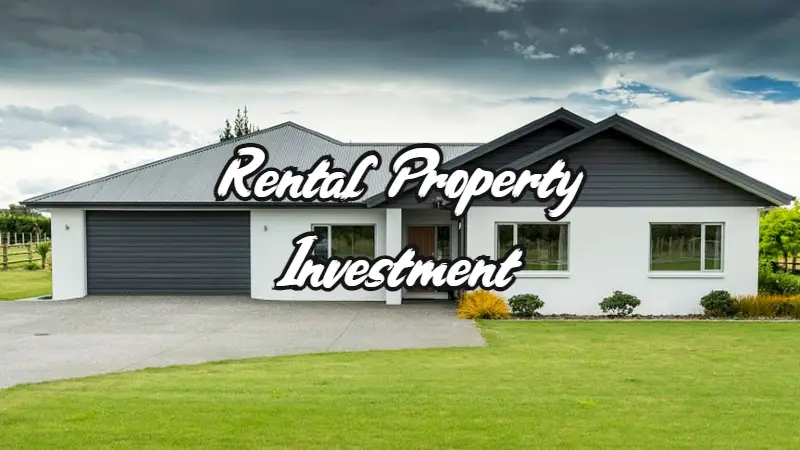Rental Property
It's relatively easy to see why New Zealand is a brilliant place to invest in rental property. As one of the most beautiful countries in the world, with a delightful climate, it's no wonder that many investors are choosing to invest in rental property here. As long as you have the right strategies and systems for success, there's every reason for you to succeed. If you're a beginner in property investment in New Zealand, then this post is for you! You'll learn the ropes of investing in rental property for beginners, and hopefully, you'll have a clear idea of where to start.

RENTAL INVESTMENT
Find out it rental property investment in New Zealand is right for you. Rental Property Investment
Find out what is the current return on investment for rental property investment in New Zealand it may surprise you. Rental Property ROI
Find out how you can buy rental property with no money. Rental Property With No Money
Check out the one rental property per year plan. Rental Property Plan
Check out some of the risks associated with rental property investment in New Zealand. Risk With Rental Property Investment
Check out some of the benefits of rental property investment in New Zealand. Rental Property Investment Benefits
Check out what laws you have to adhere to when investing in rental property in New Zealand. Rental Property Investment Laws
How do you know if it's right for you?
With the right tactics and strategies, anyone can make it as a rental property investor. Investing in rental property for beginners can be a lucrative venture. You just have to know where and how to buy a rental property.
Here are some factors to consider:
Can You afford a rental property :
There is more to owning a rental property than paying the mortgage. You need to factor in ongoing costs such as rates, insurance, and maintenance.
How much do You need to put down as a deposit :
You will usually need a minimum 20% deposit unless you have a parent or family member who can act as a guarantor. Ask your lender about their requirements.
If you plan to borrow money, check with a mortgage broker or your bank about how much they’ll be willing to lend you. They will take into account your current financial situation and any other existing debts.
If you have a partner with good credit, s/he may be able to help secure finance. Otherwise, it’s vital to ensure that your credit history is fairly clean before applying for a loan. Any blemishes on your credit report could affect the amount of money you can borrow or the interest rate you’ll get offered.
What will Your loan repayments be :
Lenders use different ways of calculating loan repayments and interest. Make sure you understand how payments are structured, including any fees and penalties.
Use our calculator to work out how much you can borrow and what your repayments will be.
Example calculation:
$300,000 cost of investment property
$60,000 deposit (20% of the purchase price)
$240,000 mortgage required
5.5% interest rate
30-year term
The monthly payment is $1,465.02**
What kind of rental property should You buy :
Consider the type of property you’d like to invest in, such as a house or apartment, and whether it’s furnished or unfurnished.
You could also think about buying a property in an area with a high demand for rentals, like Wellington. You could ask friends or family who rent what they want from their landlord. Wherever you decide to buy, it’s always important to do your research before making an offer.
What are your goals :
There’s no point in investing in rental property unless you have a clear idea of why you’re doing it. Maybe you want to diversify your investments, or maybe you want to use the income from the property to fund your retirement. Maybe you’re hoping to build up equity so that you can buy another investment property in the future. Or perhaps you just want a place to live when you retire but aren’t sure where yet.
Your goals will determine the type of property you buy and where to find it. Some investors are happy with a house in an area they know well. Others prefer a more hands-off approach and look for properties in new developments such as apartment complexes. If you don’t have time or expertise to manage a property yourself or don’t want to be bothered with tenants’ issues at all hours of the day and night, look into investing in shares in managed funds that own rental properties.
What is the best ROI for a rental property?
New Zealand’s property market has been on a steady upward trend over the past couple of years, with increasing demand from both locals and international buyers. The supply shortage is expected to continue into the near future, which means there will still be opportunities to purchase property at competitive prices.
With low-interest rates and stable economic growth, New Zealand is an ideal place to invest in rental properties.
The best ROI (return on investment) in New Zealand is in the Auckland area, with ROI between 3-5%.
How to buy rental property with no money
You may not know that you can buy investment properties in New Zealand even if you don’t have any money to put down! It’s true. And it’s easier than you think.
Here are some of the ways you can invest in property in New Zealand without having any money set aside beforehand:
1. Use the equity from your current home :
If you already own a home, you can use its equity to help finance your investment property purchase. This will allow you to use your existing home as collateral on a second mortgage or “home equity loan.” The downside? You’ll be putting your original residence at risk, which could be a deal breaker for some people.
2. 100% Financing With a Hard Money Loan :
Hard money loans allow investors to purchase properties by providing financing for the purchase price and rehab costs. The loans are secured by the value of the real estate that is being purchased. This means that hard money lenders focus on the property’s value as collateral rather than on your creditworthiness as a borrower. They also provide recourse loans, which means they can go after your personal assets if you default on the loan.
3. Crowdfunding :
If having multiple investors sounds like a headache, consider using crowdfunding. With crowdfunding, an individual or group of investors pool their money together to fund a real estate project (including the purchase of any asset). In exchange, those who contributed get an ownership stake in whatever asset was purchased with the pooled funds (usually real estate).
Buy one rental property per year (Plan)
The following plan assumes that the properties will be positively geared and that you will be able to use any tax refunds to fund the additional deposits for each property.
This plan is only a guide, and you should always seek professional advice from your accountant or solicitor.
Now, we don’t want to get too technical here, so let us explain what we mean by the ‘compounding effect.’ Let’s say you buy a property worth $450,000 today with a deposit of $100,000 and borrow the rest from a bank at 5.5%. You then rent it out for $500 per week (after expenses), making it positively geared. This means that each week you receive money from your tenants (a return on your investment), which you can use to pay down your mortgage faster.
A year passes by, and the value of your property goes up by 8% (this is based on historical data for Auckland). This means that your property is now worth $483,000… but wait… your property is also generating a positive cash flow each week, which allows you to make additional repayments on your mortgage.
To get the most out of this plan, it’s essential that you understand how property investment works and what is involved in being a landlord.
Consider the Potential Risks vs. the Benefits
Rental property investment is a great way to build up your wealth and create passive income. However, it’s important that you weigh the risks vs. rewards before taking the plunge and use this guide to help you make an informed decision.
Risks of rental property investment
Investing in rental properties has its perks, but it also comes with some risks. Let’s look at some of the challenges investors face when buying an investment property:
Tenant issues: If a tenant moves out, leaves damage, or doesn’t pay the rent, this can cost you time and money to resolve. Plus, if your rental property is vacant for a long period of time, you won’t be receiving any income from your investment.
Maintenance costs : As a landlord, you have to ensure your property is well maintained to avoid any costly repairs in the future. Any maintenance issues must be fixed by law, and if they are not resolved within a reasonable timeframe, tenants can claim compensation.
Vacancy rates : Most landlords will experience a vacant unit at some point, especially if they have more than one property in their portfolio. Vacancy rates can vary by location, but there’s always the possibility that you won’t be able to find tenants for your units or that tenants will move out unexpectedly. You should always factor vacancy into your overall financial plan for rental property.
The responsibilities of owning a rental property include:
- Finding quality tenants who pay on time and keep your property in good condition.
- Responding promptly to tenant needs and complaints (like a leaky roof).
- Collecting rent every month (even if your tenant is late).
- Paying bills on time (including mortgage payments).
- Repairing or replacing broken items as needed (like appliances, hot water heaters, etc.)
- Managing finances efficiently by collecting rent, paying bills, and saving for the future.
Benefits of Property Investment
The rewards of owning a rental property are many. The most obvious is the tangible benefit of having a new income stream.
There’s a certain sense of satisfaction that comes with being your own boss and seeing an investment in your own backyard come to fruition. A rental property can be a great way to build wealth, but there’s no getting around the fact that it requires hard work and time. But there are other, less obvious benefits:
A hedge against inflation:
Rental income helps protect you from the impact of inflation. Inflation is the rise in the cost of goods and services over time. Inflation erodes purchasing power, so it takes more money to buy the same things. Rents usually increase with inflation, so your rental income increases too, helping you keep up with rising costs.
The potential for capital growth:
While location is the most important factor when it comes to real estate investing, market conditions and economic factors can affect the value of your property over time.
Rental properties in high-demand areas with low vacancy rates tend to appreciate value more quickly than those in less desirable locations.
Say you purchase your rental property for $500,000, and it increases in value by 4% per annum; after 30 years, it will be worth close to $1.5 million. That’s an extra $1 million (or thereabouts) in your pocket!
Tax benefits:
This is a big drawcard for people who invest in rental properties. Mortgage interest payments and other expenses related to your rental property are tax-deductible; what’s more? You can also claim depreciation on items such as whiteware or carpeting and fixtures such as light fittings and hot water cylinders – even in place when you bought the house!
Understand the local laws regarding rentals
Ensure you know the rules around renting out a property, including your obligations as a landlord and what standards your home must meet under the Residential Tenancies Act 1986 and relevant building codes.
Rental Property Investment For Beginners
Realistic expectations, the ability to sleep at night, and a healthy dose of patience are the keys to successful rental property investment in New Zealand. Armed with these three qualities, you’ll be able to handle any situation that comes your way – keeping your stress levels low and continuing your journey towards achieving long-term personal financial security



